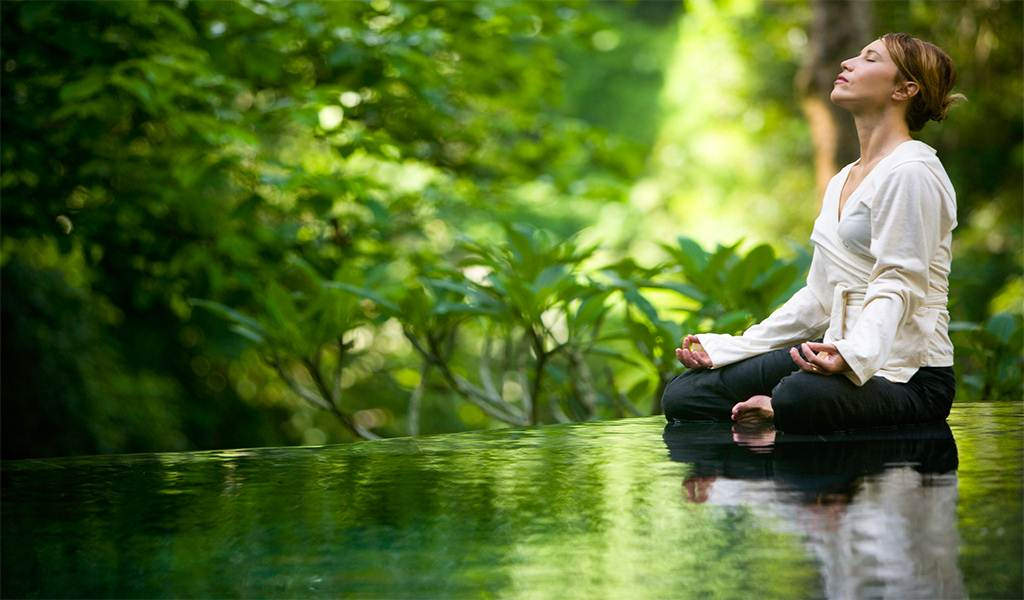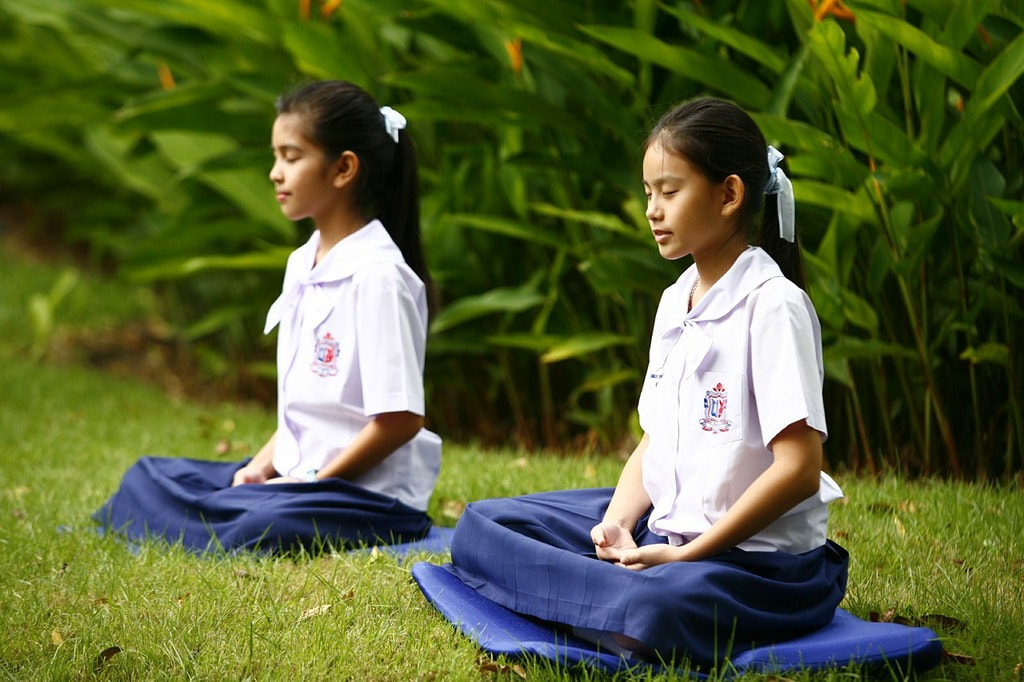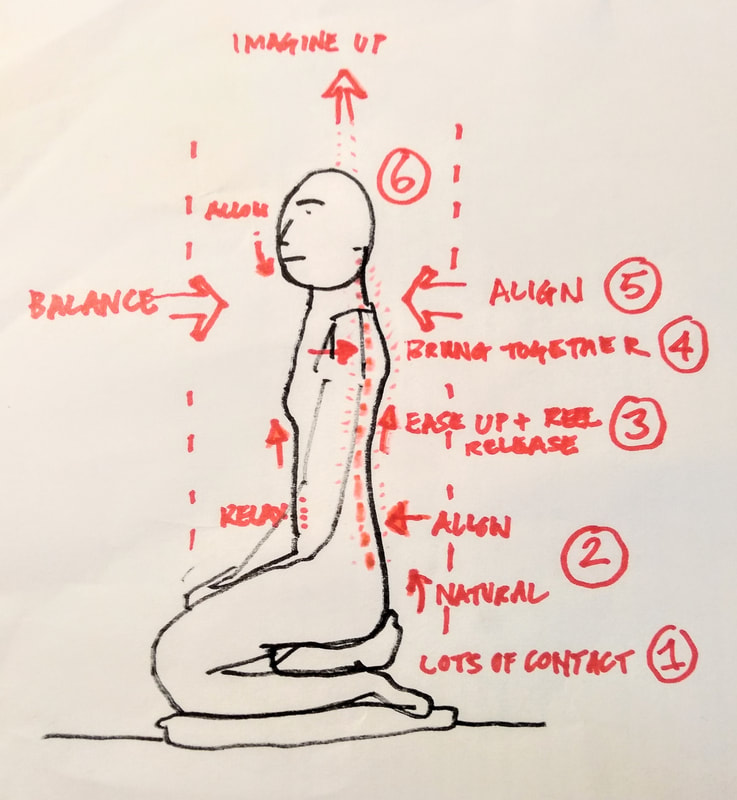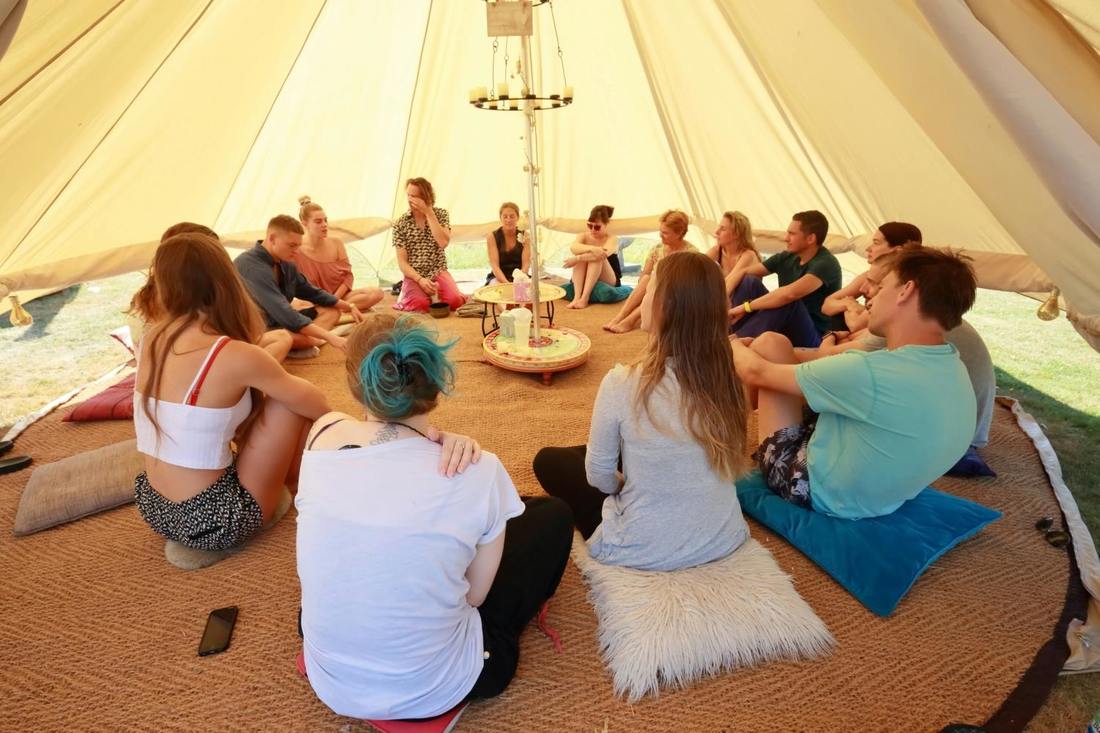|
MEDITATION POSTURE There is a lot of bollocks on the internet about posture, featuring attractive young men and women sitting on rocks overlooking water, or on steps (!?) as if they've been sat there for hours contemplating wise enlightened attention. Utter marketing drivel. Please don't buy it or anything you read here that make you think you're not good enough. The aim of this blog is to dispel that claptrap and keep it simple, concise and useful. HOW SHOULD I SIT IN MEDIATION? Firstly let's get it clear - meditation is a practice of mindfulness (paying attention to the present moment without judgement). Therefore there is no 'right' as that is a judgement. The aim is to sit in a way that is comfortable for your body, and which also represents the attitude you want to carry inside as you meditate. What you 'want' not what you 'need' to do. This chosen attitude will dictate your posture. Interestingly there are theories that the external attitude is related to an internal attitude. One is affected by the other. That means your current posture is a reflection of your internal state AND you can affect your internal state by changing your posture. My experience is that by choosing a posture to reflect an attitude that I deeply enjoy I have created that inside and out as an automatic pattern. :) INTENTION + ATTITUDE + VISUALISATION + BODILY FEEDBACK = POSTURE. Intention: Why are you here? What are you hoping to feel, have or do within this meditation? You don't have to think about this every time, but for the first few it's worth considering. Generally my intention is to love myself, to be diligently focused and peaceful & loving towards what I find. Attitude: What attitude would I like to bring to create that intention? Again, I'll get into the swing of this and barely think about it most day, but I'll often remind myself: I'm going to choose an attitude of 'self respect' and 'alertness'. Attitude and intention are nearly the same thing, but attitude is more of a feeling and way of 'being', whereas intention is more a 'doing'. Visualisation: What image could help create the attitude? I like to use either, the image of wearing a cape, like superman, and tying it on creates a shoulder roll. Or the image of a string at the crown of my head getting lightly pulled up so that my spine hangs naturally. Another is to imagine a cushion of air between each vertebrae and then as you breathe in deep it inflates and as you breathe our some air is released, leaving the spine well adjusted and stacked. You can hold the visual image for 10-30 seconds to make it stick. You don't have to physically change anything, the body will do the work for you. Bodily Feedback: What would this look like in posture? Let's give it a go and find out as we tune into the body. I start by choosing to kneel, with a straight back, relaxed face, slightly dipped chin. I then realise my shoulders are hunched and chest is collapsed so I correct this with a rib cage lift (engage the core muscles!) and roll my shoulders behind my back. Posture: Many people like to sit cross-legged. I usually like to use a stool and kneel. I can change my posture in small ways (or completely) as I meditate. Moving doesn't mean I've failed. I've gradually learned when to tune in to discomfort, to watch and wait. Now I rarely move, but that is a natural product of years of experimentation. I've been meditating a long time and I'm used to this posture. Sometimes I try a different posture once in a while to shake things up. These could include: 1.Sukhasana (Easy Pose) Basically legs crossed sitting with feet under the knees. Some all it Burmese. 2. The Lotus positions (seductive name!) Quarter is basically legs crossed with feet on the calves. Half lotus would be one leg on top of the other thigh and one leg extended (awkward!) and full lotus is both feet resting on top of the opposite thighs. Pali term: Padmasana.
So what do I do in a meditation? It's really simple, but it's not easy. The point it to BE WITH YOURSELF in non judgement and non reaction. That means sit relatively still and allow yourself to NOTICE, OBSERVE and WELCOME things (NOW). Be in the now. If your thoughts come, acknowledge them, thank the mind and bring your focus back to here and now. This could be:
Mantra? A mantra is a repeated phrase used to concentrate the mind. Some people love to chant or think in meditation. I love an internal mantra and sometimes use it. Here are a few nice ones:
The key thing to remember: Compassionate Curiosity
With meditation posture and stillness are HELPFUL but the key thing is to practice COMPASSIONATE CURIOSTY. Meet whatever you find with this attitude and you'll begin to train the mind to do this all the time. Your body will relax and cooperate. It take time and repetition, as with any skill, but more than that is takes the quality of compassionate curiosity. If you nee to move, adjust or do something in meditation take a moment and get curious first, then, if you wish, do it, and enjoy it - do it fully and deliberately. Notice how it is. Then, choose to come back to stillness and introspection. It is a wonderful journey and if you are just beginning I am envious! So many riches to open up to and discover. You'll grow in sensitivity and awareness as well as love for yourself and the world. Of course, you'll probably first discover IT GETS HARDER BEFORE IT GET'S EASIER. Because we become more aware of patterns of shame, guilt, anger and fear.... jucy! If you need help let me know. Good luck and enjoy the ride x
4 Comments
10/1/2019 11:41:45 pm
Thank you for a terrific article. It's very detailed and comprehensive.
Reply
Neik
11/1/2019 09:10:31 am
Thanks so much for the lovely feedback
Reply
neil morbey
20/1/2019 04:29:15 pm
Wow! Really? Gosh that's lovely to hear .I sometimes assume no one is reading my terrible writing and getting any use from it so it is lovely to hear I'm being useful and appreciated .:)
Reply
Leave a Reply. |
AuthorsNeil Morbey is a meditation teacher, group facilitator and inspiration guide for Positively-Mindful.com Blog Index
Archives
May 2024
|




 RSS Feed
RSS Feed